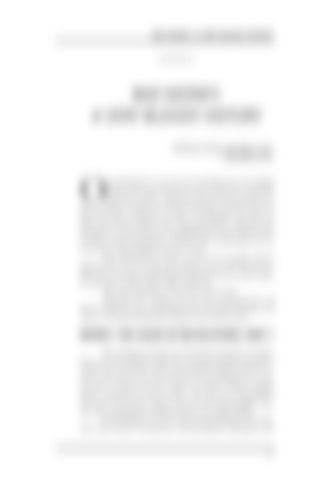BAD MONEY: A VERY BLOODY HISTORY CHAPTER 4
BAD MONEY: A VERY BLOODY HISTORY Dishonest money dwindles away. —Proverbs 13:11
O
utnumbered five-to-one, the few remaining men of an original group of 400 surveyed what was sure to be the last of what had been many assaults. Advancing with their bayonets drawn, the enemy marched over their own dead to converge on a position that was little more than a farmhouse in a field. The defenders met them, yet again, with muskets and sheer will. Exhausted, bloody, outgunned, and running low on ammunition, the dwindling band of men refused to give up. Their courage was infectious, and their action would inspire the rest of the army to keep fighting for years to come. That battered army, all that was left of an emerging nation’s fighting force, was at the same time making a hasty retreat for survival. If the men at the farm could hold off the advance for just a while longer, the main force would escape to fight another day. They threw themselves at the enemy one last time. Observing their sacrifice from his post overlooking the old Dutch Farmhouse, the commanding general remarked with pride and sorrow, “Good God! What brave fellows I must lose this day!”
MONEY: THE CAUSE OF REVOLUTIONS, PART 1 The exchange of money was necessary for commerce in ancient times, and moneychangers filled this role. Moneychangers provided a crucial service in ancient societies, where different regions had their currencies, each with its own value. The job of a moneychanger was to convert coins or currency from one region or country to another, typically taking a commission for their services. The need for moneychangers arose from the fact that currency and coins had varying weights, sizes, and values, making direct exchange between two parties difficult. Moneychangers served as a kind of early banking system. They often kept records of transactions and held deposits, allowing for the 37











